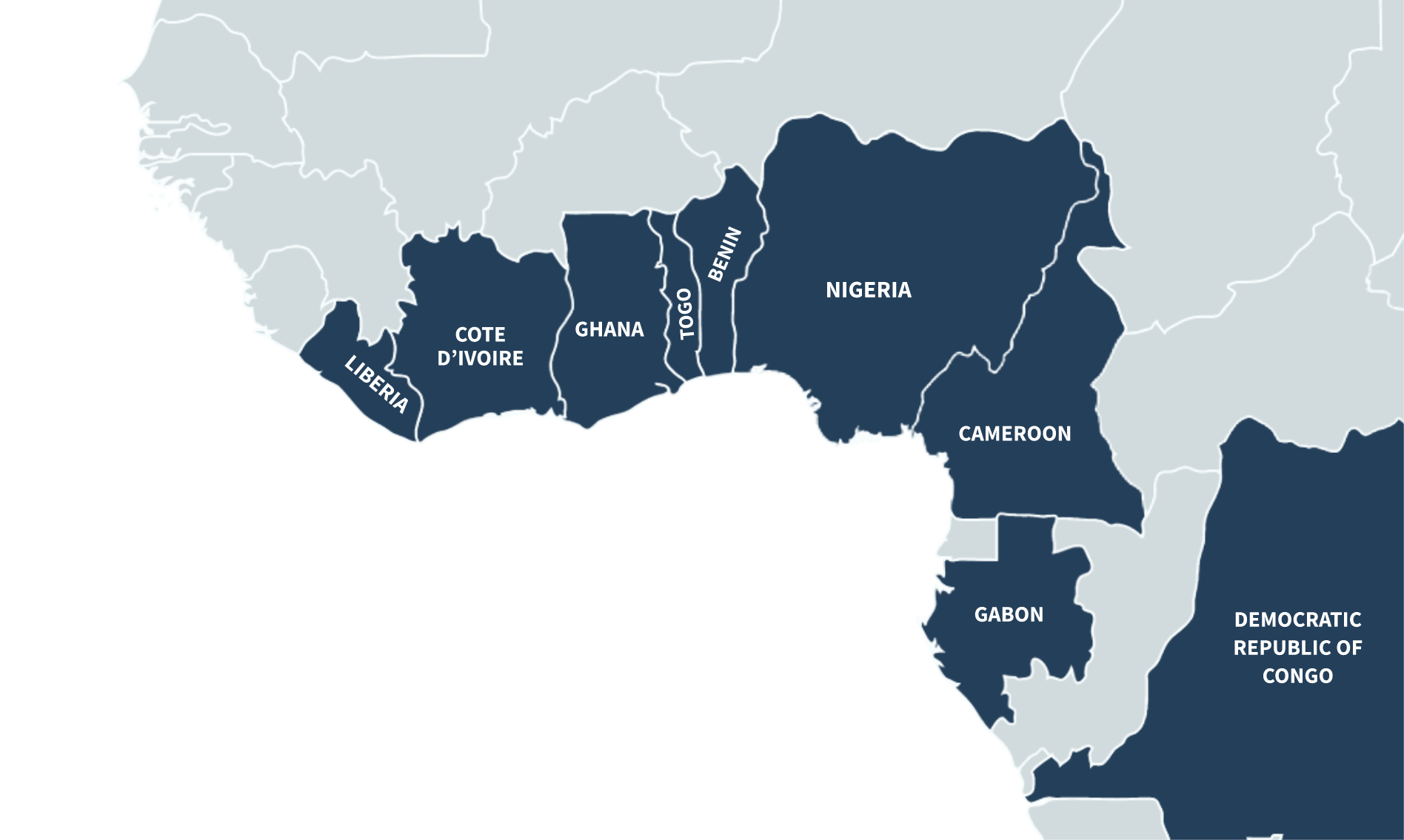Skin NTDs
Lab Network
Diagnosing neglected tropical diseases (NTDs) like leprosy and the flesh-eating Buruli ulcer can be difficult. To confirm a case, special labs have to run a series of tests. It could take weeks or months before a patient knows the results of their test.
Since all labs don’t use the same testing methods, it’s even possible for someone who desperately needs treatment to receive a negative test.
All these testing delays cost valuable time, sometimes resulting in disabilities for people affected.
Those delays can have lifelong consequences for children like Erica. Undiagnosed, Buruli ulcer can lead to terrible scarring and disabilities.
This is why, with your support, American Leprosy Missions, the World Health Organization, and the Pasteur Center of Cameroon formed a laboratory network in 2019 that works to ensure fast, accurate diagnosis for hundreds of children like Erica.
The Skin NTDs Laboratory Network includes 13 labs across West Africa: the largest lab network on the continent! Working together, they all use the same high-level standards when testing for Buruli ulcer and other neglected tropical diseases.
Since the network began, it has processed 7,726 tests! We’re excited to see how these labs will create a better future for people suffering from NTDs across West Africa.

The network includes labs in Benin, Cameroon, Côte d’Ivoire, the Democratic Republic of Congo, Gabon, Ghana, Liberia, Nigeria, and Togo.
Read how the network was formed and what it means for other neglected diseases in West Africa.
Thanks to your generosity, this network processes tests quickly and accurately so that more people can receive the care they need to heal from neglected diseases.
